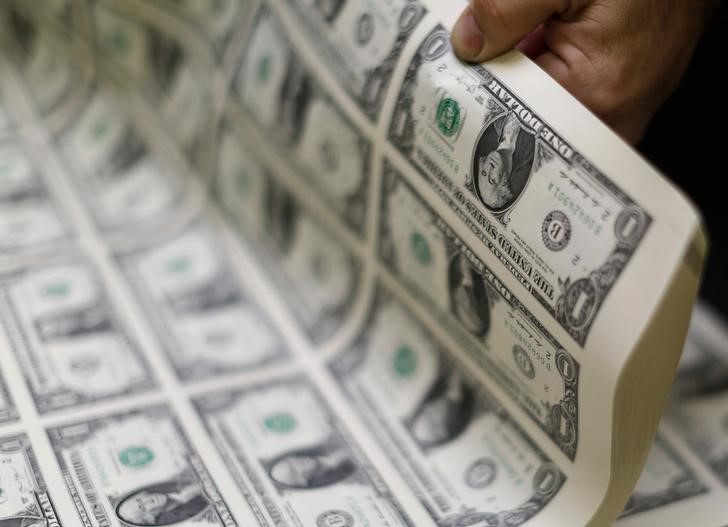Investing.com - The dollar hit a fresh one-week low against other major currencies on Friday, as concerns over the fate of a highly-anticipated U.S. tax reform bill continued to dampen demand for the greenback and an unexpected drop in U.S. consumer sentiment dampened optimism.
U.S. Senate Republicans unveiled a plan on Thursday which would reduce the corporate tax rate to 20% from 35% and make other significant changes to the individual tax system.
However, investors remain cautious as Senate Republican leaders said that they were considering postponing the implementation of the major corporate tax cut until 2019.
Meanwhile, a House tax reform bill, which differs from the Senate version, would be expected to take effect next year. If the Senate and House pass separate tax bills, lawmakers will have to reconcile them.
Adding fuel to the bears, consumer sentiment took a hit in November, according to preliminary data released on Friday.
Specifically, preliminary publication of the data for this month from the University of Michigan's Consumer Survey Center showed that consumer sentiment fell to 97.8 when forecasts had suggested the index would remain unchanged at 100.7, while readings for current conditions and expectations also missed expectations.
The U.S. dollar index, which measures the greenback’s strength against a trade-weighted basket of six major currencies, lost 0.07% at 94.34 by 11:17AM ET (16:17GMT), just off a one-week low of 94.16 hit earlier on Friday.
EUR/USD edged up 0.10% to 1.1653, while GBP/USD rose 0.46% to trade at 1.3206 after the UK Office for National Statistics said manufacturing and industrial production both increased by 0.7% in September and both beating expectations for a 0.3% uptick.
Year-on-year, manufacturing production increased more than expected by 2.7% in September, while industrial production advanced by 2.5%.
The positive data on the British economy seemed to offset renewed concerns that Brexit negotiations were unlikely to progress sufficiently in order to move forward towards trade talks in December. EU negotiator Michel Barnier gave the UK a two-week deadline on Friday to present an agreement on the financial settlement for Britain’s departure from the political and economic bloc.
Elsewhere, USD/JPY was almost unchanged at 113.44, while USD/CHF added 0.29% to 0.9957.
The Australian dollar turned lower, with AUD/USD down 0.29% at 0.7657, while NZD/USD dropped 0.20% to 0.6933.
Earlier Friday, in its quarterly monetary policy statement, the Reserve Bank of Australia downwardly revised growth expectations for December 2017 to 2.5% from 2-3% in the previous forecast issued in August.
However, the RBA said it expects the economy to expand at "a solid pace" over the next few years, citing positive labour market developments.
Meanwhile, USD/CAD recovered slightly after hitting its lowest level since the end of October, rebounding 0.05% to 1.2689.
